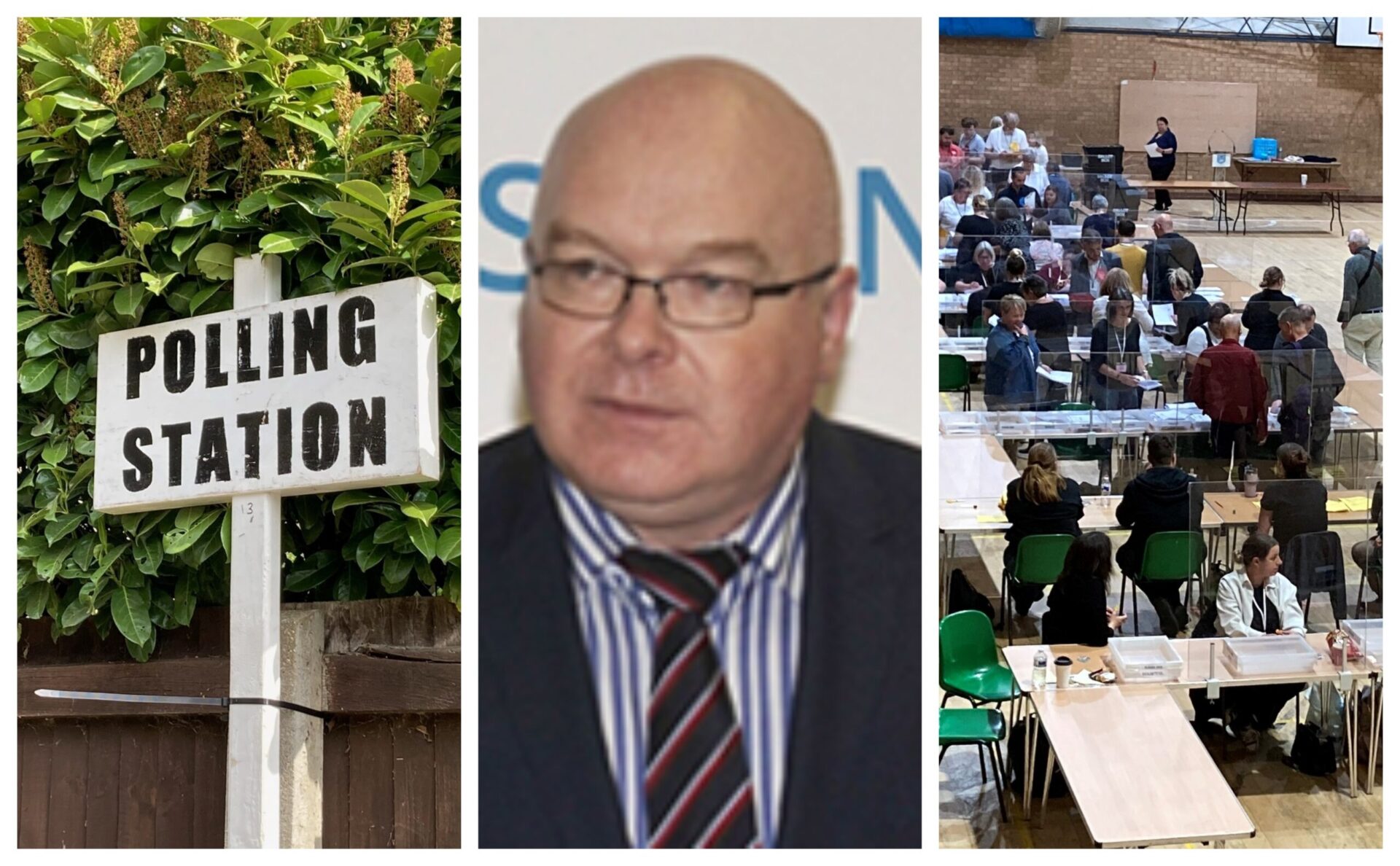One result is in already for the May 2025 election of a new Mayor for the Cambridgeshire and Peterborough Combined Authority – that of John Hill as returning officer. Whilst political parties mull over their potential candidates (well apart from Labour of course who will stick with incumbent mayor Dr Nik Johnson), the Combined Authority is about to ratify the re-appointment of Mr Hill as returning officer.
On September 4 the Combined Authority board is being invited to re-appoint Mr Hill, East Cambridgeshire District Council chief executive, for the mayoral election on May 1, 2025.
Mr Hill was the Combined Authority Returning Officer (CARO) for the 2017 and the 2021 mayoral elections.
“He was also appointed as the Police Area Returning Officer (PARO) for the Police and Crime Commissioner elections for 2021 and 2024 and has extensive experience in the wider area roles for elections for a number of years prior to this too,” says a report to the board.
“The CARO is a significant and complex role responsible for the overall management of the mayoral elections with specific responsibility for administering the nomination process, calculating and declaring the result and production of candidates addresses.
“Co-ordination of the process, particularly in relation to polling day and the count is particularly complex given that it covers the full Combined Authority area.”
Matthew Cumberbatch, monitoring officer, says advice was sought from the Electoral Administration team within the Cabinet Office on such appointments.
“On this advice and the experience John Hill has, it would be correct and prudent to reappoint John as the person with the most experience in the region,” he says.
“However, to strengthen further resilience, the CARO will be asked to share their knowledge and processes with fellow returning officers in the region for any future elections.”
Mr Cumberbatch says the cost of the 2021 Mayoral elections was £0.96m. The Combined Authority has allocated £1.04m for the 2025 elections based on an annual provision of £0.26m over four years.
“However, due to the Police and Crime Commissioner elections not being held at the same time as the Mayoral election (unlike 2021) the costs associated with the election will be shared across fewer organisations,” he says.
“Taken together with the impact of higher inflation since 2021, this has resulted in early forecasts of costs approximately 50 per cent higher than originally set aside in the budget.”
Next year’s mayoral elections are scheduled to take place under a First Past the Post system – unlike earlier elections which used the Supplementary Vote system whereby voters were allowed to cast first and second preference votes.
Where no candidate receives more than half of first preference votes, the two candidates with the most votes go through to a second round. Every other candidate is eliminated, and second preference votes are transferred to that candidate.
The outcome of the second round is that the winner with the highest number of combined first and second preference votes wins.
The Elections Act 2022 has meant elections such as the police and crime commissioner poll this year reverted to a First Past the Post system.
The Electoral Reform Society feels this is unfair and in a recent article pointed out that “this often leads to outcomes where many voters are ignored, and candidates are able to win on a low share of the vote”
It cites as an example Labour’s David Skaith who won the new position of York & North Yorkshire mayor with little more than one-third of the vote (35.1 per cent).
“Meanwhile, the Conservative’s Philip Wilkinson became Wiltshire’s PCC with fewer than one-third of votes cast (31.0 per cent),” says the article by research officer Ian Simpson.
“In the hotly contested West Midlands mayoral election, Labour’s Andrew Parker (37.8 per cent) beat the Conservatives’ Andy Street (37.5 per cent) by just 0.3 per cent, or 1,508 votes out of a total of 601,828 ballots cast.

“There are ways of voting for individual elected positions that would ensure fewer wasted votes and a greater democratic mandate for the victor. Unfortunately, the Election Act 2022 abolished such alternative voting arrangements for mayors and PCCs.”
Unless the Labour government changes the system, it will be First Past the Post come next May.
Cambridgeshire and Peterborough Combined Authority, in preparation for the election, has also published a protocol to allow engagement with mayoral candidates.
“This protocol is designed to ensure that the candidates for the office of Mayor of the CPCA are given all necessary and appropriate support during the campaign, whilst ensuring fairness and neutrality,” says a report agreed by the board last month.
“It is important that the candidates for the office are able to access all relevant and appropriate information about how the new arrangements will work and the existing policies of the CPCA, to enable them to develop their manifesto for office and set out their political position to the electorate of the Cambridgeshire and Peterborough.”
Under the heading ‘access to information’ the Combined Authority says all declared and confirmed candidates will be provided with information they request based upon the Freedom of Information Act standard of openness and transparency, without the need to submit an FOI request.
“It should be remembered that the candidates, for the moment at least, are ordinary members of the public and the fact that they are running for election does not give them the right to access information in the same way as an elected official,” says the protocol.
“Care should be taken not to divulge confidential information beyond the FOI threshold.”
The report protocol says contact between the candidates and officers will follow a similar set of rules as adopted in central government prior to General Elections – the Alex Douglas Home Convention (referred to as the Douglas-Home rules).


























